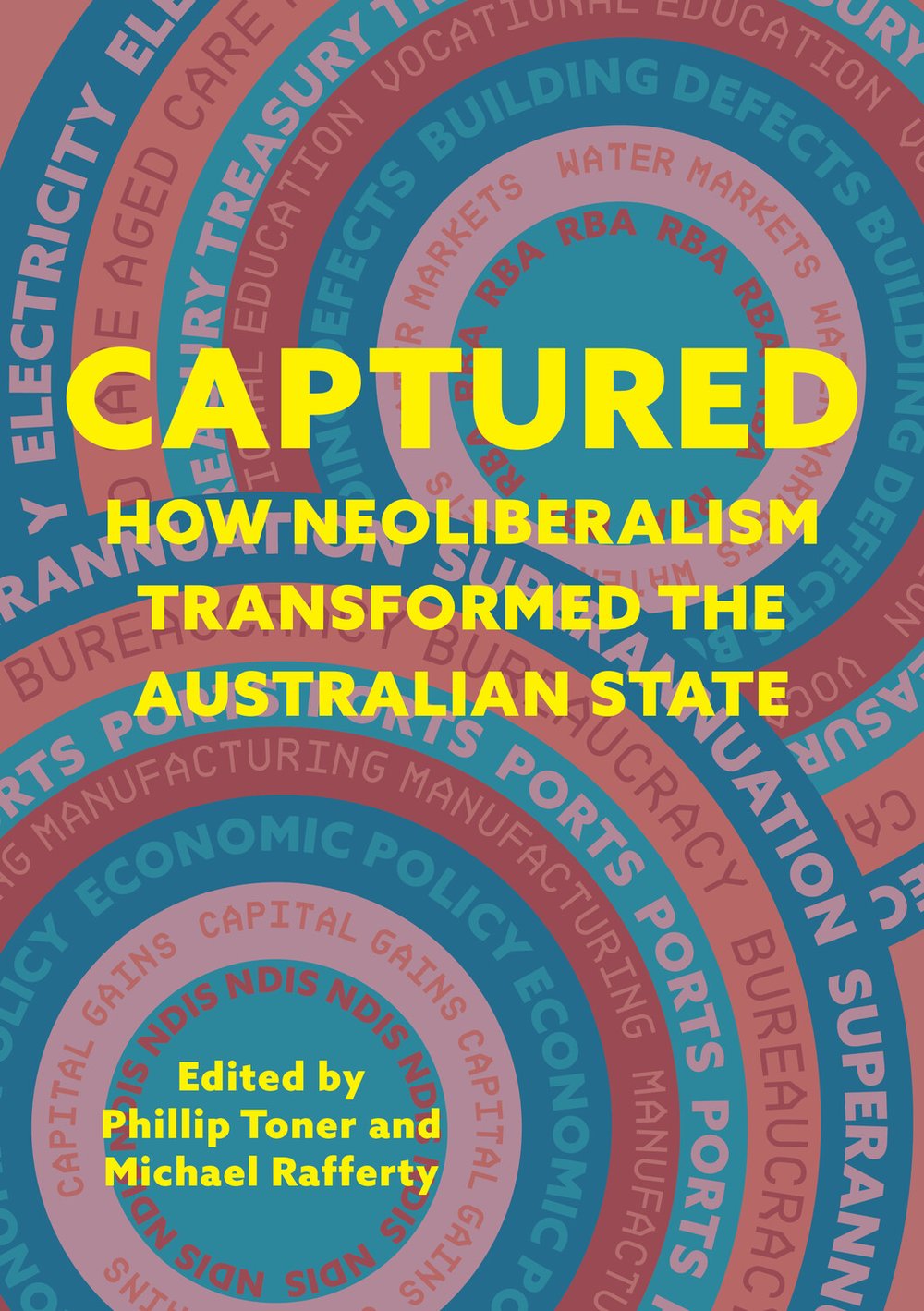Captured
How neoliberalism transformed the Australian state

Four decades ago, faced with a series of economic, political and social crises, business and government leaders in Australia and many other nations were convinced by a well organised ideological insurgency of the need for what at first was presented as a series of technical changes in economic policy. However, neoliberalism quickly became a revolutionary agenda for re-ordering the social democratic state.
Captured: How neoliberalism transformed the Australian state directs attention to the central role of state power not just to remake markets, but also to remake a broad swathe of political life, social policy and citizenship.
In seeking to undermine the power of organised labour and 'unleash' market capitalism, neoliberalism promised a surge of competition, productivity and common prosperity. For the wealthy few, this has indeed been an historically unprecedented time of capital accumulation, but for most, the results have been profoundly disappointing.
Today, neoliberalism is in crisis. We are living through an age of great instability, disillusionment and despair. Inequality of income and wealth has been rising; a majority of workers have experienced long-term declining relative living standards; corporate political and market power has reached historic levels; and younger generations are increasingly giving up the expectation of attaining the living standards of their parents. The status of prevailing neoliberal ideas and policy is in increasing disarray.
But without a coherent understanding of the ideas and interests driving neoliberalism, many people have turned to incoherent populism for an explanation and salvation and, failing that, even to forms of nihilism. Disillusion and anxiety constitute the dominant mood among the economic and policy elites, within Australia and internationally.
Captured presents a series of case studies from leading public policy experts, building critical new insights into the malaise that has characterised the neoliberal era. This book tells the story of how a small group of economists and lobby groups with a universalising agenda of radical change used neoliberalism to transform the state, and of the destructive effects of those policies on everyday life. Captured includes critical accounts of neoliberal policy and speculates on the likely future of neoliberalism as a form of political power and governmentality in Australia.

Phillip Toner is a political economist and has worked in government, universities and industry focussing on industry policy, labour markets and technical innovation. He has published in leading journals and worked extensively in consulting to entities such as the OECD, ILO and European Union. He is an Honorary Senior Research Fellow in the Department of Political Economy, University of Sydney.
Michael Rafferty is a political economist with a research interest in finance and labour. He has published widely on these topics and has been a regular commentator in the media. He teaches international political economy at RMIT University.
